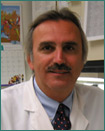
Pichichero
[back] Government/industry
MMR cover-ups
[back] Experts
[July 2008] Will the Real Dr. Pichichero Please Stand Up?
[Jan 2008] Pichichero.
Pediatrics. Babies excrete vaccine-mercury quicker than originally
thought
Pichichero, M.
et. al. 2002. "Mercury concentrations and metabolism in infants receiving
vaccines containing thiomersal: a descriptive study." The Lancet 360:
1737 - 1741.
Review by
Helen Tucker
Pichichero has acknowledged financial links with Eli Lilly & Company, the developers of thiomersal and the main target (to date) of US autism litigation. In an article back in April 2000 in the American Academy of Family Physicians newsletter, Dr. Pichichero made the following disclosures of interest: he had received research grants from Abbott Laboratories, Bristol-Myers Sqibb Company, Eli Lilly (note), Merck, Pasteur Merieux Connaught, Pfizer Laboratories, Roche Laboratories, Roussel-Uclaf, Schering Corporation, SmithKline Beecham, Upjohn, and Wyeth-Lederle. [July 2004] MMR and Acquired Autism (Autistic Enterocolitis) - A Briefing Note by David Thrower
Mercury Concentrations and Metabolism in Infants Receiving Vaccines
Containing Thiomersal - A Descriptive Study, by Pichichero, Cernichiari,
Lopreiato and Treanor, University of Rochester Medical Center, US, published in
The Lancet, November 30th 2002.
In concluding,
Sally Bernard also makes a number of other profound criticisms of this study:
?
It makes improper
use of methylmercury safety levels as a marker for ethylmercury risk
?
There has never
been any full assessment of thiomersal safety. This has been admitted by the US
Food & Drug Administration.
?
The Pichichero study does not address adverse outcomes (eg autism)
Her conclusion
is that the Pichichero study does not offer the reassurance on thiomersal safety
that is so widely claimed of it by the medical establishment. It is a
small-scale descriptive study with many methodological limitations. It has
little or no vale regarding thiomersal safety.
Pichichero also
incidentally commented in January 2003 on the new 5-in-1 vaccine that was just
then licensed by the US Food & Drug Administration. Welcoming the Pediarix-DTaP,
hep B and inactivated poliovirus vaccine that was recommended for infants at 2,
4 and 6 months, Pichichero said that its advantage was that it offered “fewer
injections for kids”, but, he then continued........”which would make room for
new vaccines that are on the horizon”.
[July
2004] MMR and Acquired Autism (Autistic Enterocolitis) - A Briefing Note
by David Thrower
"Pichichero has served as consultant to the World Health Organization, and his research has held considerable weight in the WHO decision to continue using thimerosal in vaccines administered in nations outside the United States."--- [Jan 2008] Babies excrete vaccine-mercury quicker than originally thought